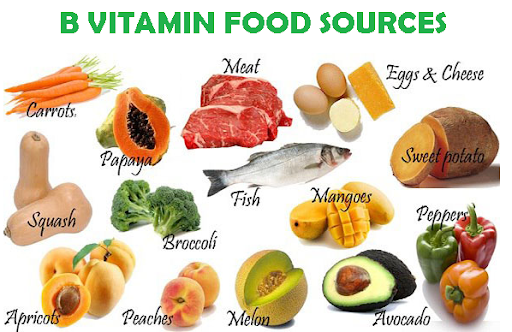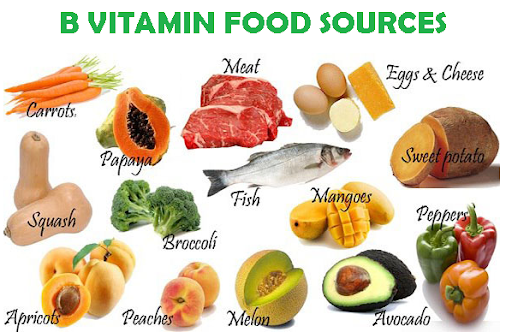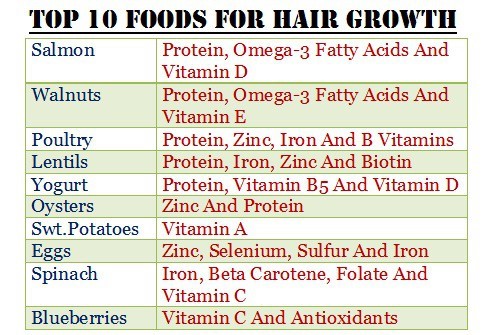HAIRLOSS AND NUTRITION

Healthy-looking long and lustrous hair is a sign of beauty. Like any other part of the body, hair needs several nutrients to be healthy and grow. Several nutritional deficiencies of important vitamins and minerals are linked to hair loss. While factors such as age, genetics, hormones, stress and lifestyle also affect hair growth, optimal nutrient intake is key.
Following are some key nutrients and vitamins essential for hair growth:
- Vitamin A, B, C, D, E, H
- Zinc, selenium, iron
- Proteins and fats
Eating a well-balanced diet with all 13 essential vitamins can help to promote good healthy hair.

Deficiencies in specific vitamins and minerals can lead to hair loss or thin, brittle hair. Consuming enough of each vitamin and minerals in the diet help keep the hair strong, healthy and shiny.

- Vitamin A
- Vitamin A is essential for all types of cellular growth.
- It is an essential vitamin for healthy growth of hair, skin and nails.
- Diets deficient in vitamin A may lead to several hair related problems
- Sweet potatoes, carrots, pumpkins, spinach and kale are all high in beta-carotene, which converts into vitamin A.
- Vitamin A can is found in animal sources such as milk, eggs and yogurt. Cod liver oil is an excellent source.
- An overdose of vitamin A, known as hypervitaminosis, can also contribute to hair loss.
- Vitamin B-Complex
- The vitamin B complex includes eight water-soluble vitamins as follows:
thiamine (B1), riboflavin (B2), niacin (B3), pantothenic acid (B5), vitamin B6, biotin (B7), folate, and vitamin B12—that aid in cell metabolism.
- The recommended daily requirement of these vitamins can be reached by eating a healthy balanced diet, with the exception of biotin, which is the only B vitamin produced by the body.
- Only riboflavin, niacin, biotin, folate, and vitamin B12 deficiencies have been associated with hair loss.
- Most of the B-vitamins help create red blood cells, which carry oxygen and nutrients to the scalp and hair follicles. These processes are vital for hair growth.
- Rich sources of B-vitamins include whole grains, almonds, meat, fish, seafood and dark, leafy greens.
- Additionally, animal foods are the only true sources of vitamin B12. So if you’re a vegetarian, consider taking a supplement.

- Vitamin C
- Free radical damage by toxins or pollutants can block growth and cause hair to age faster.
- Vitamin C is a powerful antioxidant that protects against the oxidative stress in the body cells caused by free radicals
- Additionally, the body needs vitamin C to create a protein known as collagen — an important part of hair structure and other tissues.
- Vitamin C also helps the body absorb iron, which is vital for hair growth.
- Strawberries and other berries, peppers, guavas and citrus fruits are all good sources of vitamin C.
- Vitamin D
- Low levels of vitamin Dcan trigger hair loss
- Vitamin D is thought to play an important role in hair production, but most research focuses on vitamin D receptors in the hair follicle structure.
- Body produces enough vitamin D through direct contact with the sun’s rays.
- Good dietary sourcesof vitamin D include fatty fish, cod liver oil, some mushrooms and fortified foods.
- Vitamin E
- Similar to vitamin C, vitamin E is a powerful antioxidant that can prevent oxidative stress.
- Vitamin E has recently also been promoted in several hair growth oils due to its antioxidant properties.
- Sunflower seeds, nuts especially walnuts and almonds, spinach and avocadosare all good sources of vitamin E.
- Vitamin H (Biotin)
- Biotin serves an important role in protein synthesis which is required for good hair growth
- Biotin deficiency is rare, as intestinal bacteria are typically able to produce adequate levels of it.
- Biotin helps prevent hair damage by maintaining the structure of the hair fibre.
- Hence it is widely used in commercial hair care products.
- Folic acid
- Folic acid is found in dark leafy green vegetables and many foods are fortified with folic acid, making deficiency uncommon.
- Folic acid and Vitamin B-12 play a crucial role in cell synthesis and maintenance of regular hair growth cycle.

Important trace elements for hair growth:
- Iron
- Iron helps red blood cells carry oxygen to your cells thus making it vital for many bodily functions, including hair growth.
- Iron deficiency, which causes anemia, is a major cause of hair loss. It’s especially common in women
- Foods high in ironinclude clams, oysters, eggs, red meat, spinach and lentils.
- Zinc
- Zinc plays an important role in hair tissue growth and repair.
- It also helps keep the oil glands around the follicles working at an optimum level
- Hair loss is a common symptom of zinc deficiency
- Studies show zinc supplementsreduce hair loss caused by zinc deficiency
- Foods high in zinc include oysters, beef, spinach, wheat germ, pumpkin seedsand lentils.
- Selenium
- Selenium is an essential trace element required for the synthesis of more than 35 proteins.
- The recommended dietary allowance for selenium is 55 μg daily for individuals aged ≥ 14 years
- The availability of selenium in a variety of foods, such as meat, vegetables, and nuts, are sufficient to meet the daily requirement
- Selenium, in trace amounts, plays a key role in pigmentation of hair
- Selenium deficiency, although rare, may be associated with premature graying of hair.
Essential Dietary Components for hair growth:
- Proteins and Amino acids:
- Hair is made almost entirely of protein. Consuming enough is important for hair growth.
- Protein deficiency or malnutrition may decrease hair growth and even lead to hair loss
- Keratin, an important protein required for hair fibre growth is derived from dietary protein
- Some essential amino acids such as L-lysine are important for the proper uptake of iron and zinc
- Hence a diet rich in proteins would be vital for long and lustrous hair
- Fats:
- Deficiency of essential fatty acid such as Omega-3 and Omega-6 fatty acids can affect the growth of hair
- Hair changes include loss of scalp hair and eyebrows as well as lightening of hair
- The essential fatty acids also promote the growth and proliferation of new hair follicles
- Dietary sources include edible seeds, nuts, fatty fish like mackerel, cod, soyabean.

Some easy Do’s and Dont’s for good hair growth:
Do’s
- Do regular exercise
- Follow proper diet.
- Have a weekly scalp massage to provide stimulation and nourishment to the hair follicles.
- Get plenty of rest and sleep to allow your body to repair and grow hair.
Dont’s
- Avoid unnecessary brushing, combing or handling. Use a soft, round bristles brush.
- Avoid hot shower.
- Excessive smoking.
Food Items You Can Easily Consume
- Cereals- fortified cereals and Wholegrains
- Milk and milk products– skim milk, yogurt, cottage cheese
- Meat– lean chicken, fish (salmon), eggs, oysters, beef
- Fruits and Vegetables– blackcurrants, blueberries, broccoli, guava, kiwi fruits, oranges, papaya, strawberries, avocado, orange/yellow coloured vegetables such as carrots, pumpkins, onions and sweet potatoes
- Nuts and Seeds– pumpkin seeds, chia seed, almonds and walnuts
- Pulses and Legumes– kidney beans, chickpeas, masoor dal, moongs beans
- Oils– sunflower oil, avocado oil, soybean oil, cod liver oil
Food for Hair Growth Means Nourishing the Entire Body
You may have noticed that the nutrients listed above benefit the whole body health, and are not just vital for hair growth. Many of these nutrients work together to support multiple body functions.
Most of these foods are common, tasty and easy to find. Nourishing our bodies with helthy balanced food will result in providing our hair with the necessary essential nutrients to prevent hair loss, as well as a hoard of other issues.






